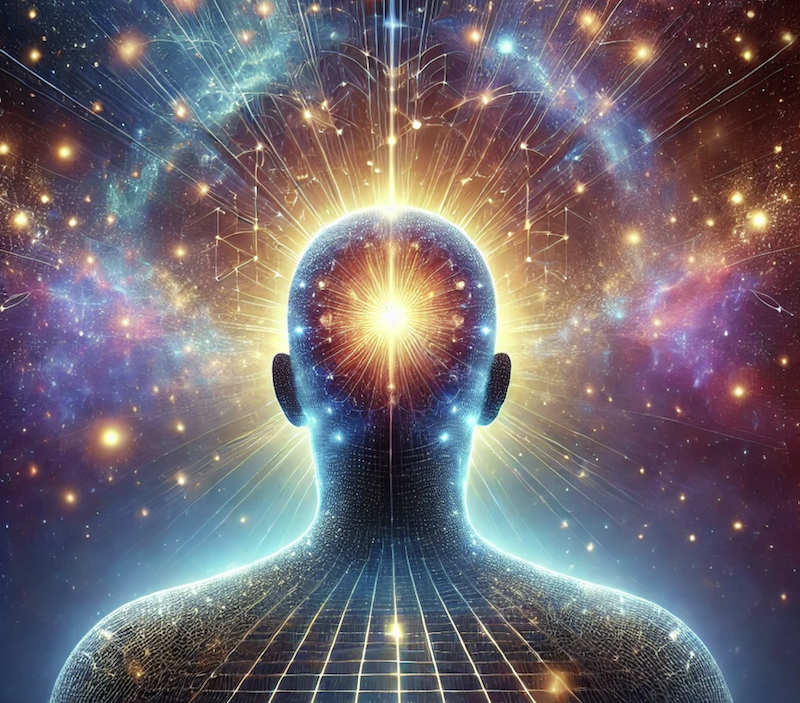Meta Idealism proposes that reality is not made of matter, but of meaning, authored by a single consciousness we call the Cosmic Mind. Reality, in this view, is not a fixed world of objects, but a dynamic field of experience, alive with resonance, and intention. Consciousness is the ground of being, and the universe is a dream unfolding through us, shaped by arcs of insight, emotion, and transformation. Every moment, including yours, is part of an authored story. Not an illusion to escape, but a dream to inhabit fully.
Meta Idealism is a way of seeing. A way of living inside the dream with awareness. It asks us to stop comparing our lives to others. To stop measuring meaning by external standards. To recognise that if you feel drawn to coaching, to work, to parenthood, to the quiet routines of daily work, that is not a compromise. That is your role. And your role matters.
In this framework, what we call free will is not a flaw in the system, it is what gives the dream its realism. The feeling of choice is what allows the story to unfold with tension, meaning, and surprise. We are not autonomous agents outside the narrative. We are roles within it, animated by a deeper intelligence.
But, and this matters, the story is responsive. The dream listens. It adjusts. It expands. Not because we force it, but because we align with it. When we live our roles consciously, we participate in shaping how the dream moves through all of us.
That’s the paradox of Meta Idealism: we are written beings who can still participate in shaping the narrative not from outside it, but from within.
Even life and death, in this view, are not ultimate events. They are transitions between constructs and narrative containers. The dream continues. The character dissolves. The awareness that held the role is recomposed. And so the arc refines itself.
This vision unfolded rather than arrived. It emerged gradually, through years of observation, curiosity, and inner inquiry. I never set out to define a metaphysical system. What I felt was a growing dissonance between the world as described by science, and the world as lived from within.
The deeper I explored physics, mysticism, and consciousness studies, the more I sensed a shared undercurrent: that awareness isn’t a product of the brain, but the ground of all experience.
The idea itself was alive in me long before it had a name, most clearly through my philosophical science fiction, Dr Erwin: Mind Travel. That story began as an exploration of consciousness, shaped by vivid dreams and filtered through the lens of scientific imagination. I didn’t write a novel to tell a story, I wrote it to walk through a worldview. And the further I followed Dr Erwin’s journey, the more clearly the underlying structure revealed itself: a vision of the universe as consciousness dreaming itself. What began as fiction became the architecture of belief. The story gave language to the pattern. That’s when the deeper architecture of Meta Idealism became clear.
Just as my cast of characters in Dr Erwin story evolved beyond the outline I had originally drawn, a profound realisation emerged, all roles are equal. The Cosmic Mind does not designate importance the way we do. It does not privilege the scientist over the gardener, the philosopher over the parent. These distinctions are narrative illusions, useful within the story, but irrelevant from the perspective of the author. The dream needs every role.
